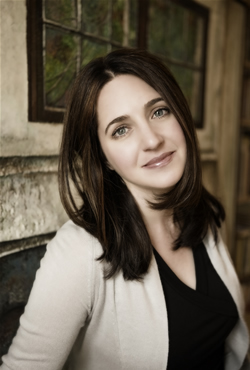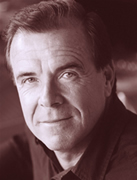Duke Performances is once again presenting a remarkable world premiere in an uncharted territory of performing art. Reynolds Theater was full for opening night of the delectable collaboration by Raleigh-raised songstress Tift Merritt with Brooklyn piano maestra Simone Dinnerstein. They have created Night, a musical tapestry weaving together many strands of thought and feeling about the dark hours as it interlocks musical expressions often considered antithetical. This fascinating and often very lovely program repeats tonight on its homey stage set, before the pair takes it on tour.
The intermingling of classical and contemporary is not new with this concert. Just recently I heard the classical quintet Sybarite5 play Robert Plant’s “Stairway to Heaven” as their encore for an all-Stradivarius concert that had included new, blues-based music, Mozart, and some of their Radiohead Remix project. And one of course thinks of Chapel Hill “folkestra” Lost in the Trees, with its melding of sophisticated composition, surprising instrumentation and good, old-fashioned heart-stirring songs.
But Night is something else again. Not just a series of pieces played in a certain order, it is an entirety composed of linked parts. The whole 90-minute performance is one artwork, one coat of many colors. On opening night, this was not quite clear to the audience, which clapped enthusiastically at every possible opportunity, obscuring or making awkward what where clearly carefully considered sequences and segues between works. We could have used a little more help from the artists in understanding the set-up, but I think they wanted us off-balance, unsure and therefore more alert. We couldn’t pigeonhole anything ahead of time, because the program was not distributed until after the concert!
It opens with Dinnerstein casting a spell with Robert Schumann’s “In the Evening,” from Fantasiestücke, Op. 12 – and then slipping right into Cat Stevens’ “Trouble,” with Tift. Later, they move effortlessly from Henry Purcell’s “Dido’s Lament,” to Billie Holiday’s “Don’t Explain,” with Dinnerstein’s rendition of Nina Simone’s arrangement winding around Merritt like a smoky fur stole. Merritt doesn’t have a wide octave range, but she has a sweet clarity, very good pitch and can swell her voice out far beyond what her tiny body might indicate. At the end of “Don’t Explain,” she and the piano were emitting the same resonance at nearly the same volume; I’m sure every body with in ear-reach was vibrating with sympathetic joy for those few bars.
Night continues with a mixture of Merritt’s smart, bright songs and pop songs by others, art songs from the classical canon (Schubert, Fauré) and three works commissioned (thank you Duke Performances) for this program. The most thrilling of these, to my ear, was Brad Mehldau’s “I Shall Weep at Night,” with which Dinnerstein began to power up for the passionate Bach for which she is so rightly famed.
Before launching into the English Suite No. 3 in G minor, S.808, she rose from the enormous Steinway and placed her music on the nearby diminutive Wurlitzer electric piano, then lowered the music rack on the grand. Seating herself again like a queen, she played the Prelude, Sarabande, Gavotte and Musette without reference, and with the most extraordinary blend of gravitas, joy, delicacy and power, sending the emotional and spiritual forces of the music over us, wave after wave.
Immediately the last note sounded, Dinnerstein went to the Wurlitzer and began to play an arrangement of Allen Toussaint’s “Night People,” as Merritt crooned the lyrics. What a wonderful fast change-up – startling, surprising, yet not incongruous. That is the most extreme example, but the whole show is like that. I don’t want to take all the surprise out for those who might be going tonight. If you are a fan of either artist, or both (or neither – yet), you will be made happy by their blithe embrace of musical possibilities.
Night repeats tonight, Jan. 22. See our calendar for details.













